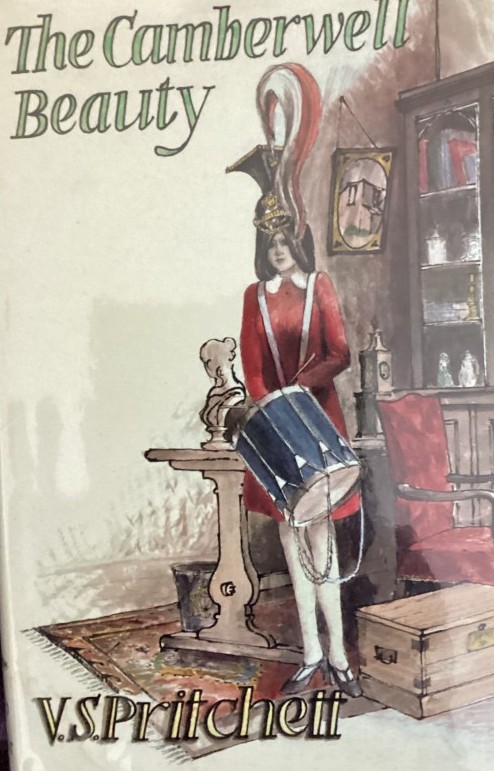Inspiring Older Readers
 posted on 05 Aug 2024
posted on 05 Aug 2024
The Camberwell Beauty by V.S. Pritchett
When I first started regularly visiting second-hand bookshops, I would regularly see books by Pritchett on the shelves and also regularly passed them by. I was aware of his reputation as a critic – you’d often see other writers naming him as an influence or speaking in admiration of his abilities - but I never felt moved to read his literary criticism once I’d left university. I was also aware that there were collections of Pritchett short stories – I’d come across them in Penguin paperback – but I tended to pass on these too because I’m not a big reader of short stories.
Now I rarely see Pritchett on the second-hand book shelves and that might suggest that his books have fallen out of circulation and, as far as I’m aware, there hasn’t been an upsurge in his popularity that has led to a plethora of reprints.
A few weeks ago, I was lucky enough to come across a rather fine copy of his eighth collection of short stories called The Camberwell Beauty and I was seduced by the excellent dust jacket design into giving it a go. Reading the nine stories – which, with the exception of the first story that gives the book it’s title, are mostly no more than 20 or 25 pages long – was an oddly conflicted experience.
The New York Times review published in 1974 on its release, captures the range of Pritchett’s stories perfectly:
“The territory is familiar to anyone who has read Pritchett's fiction over the last 30 years: seedy antique dealers and Sunday sailors, adulterous academics, a confused editor of a leftwing periodical, an unlikely film director, lonely people with dogs; old age and remembered childhood.”
If you are interested in reading these stories for yourself, you won’t want me to describe the plots of any of them but I was struck by two or three features of the collection.
Firstly, I have to say that his prose style is easy, enjoyable and laced with truly sharp, often wicked, observations – especially when he’s laying open the foibles and self-delusions of his characters. He has a gimlet-eye for little details. Take the example of the emotionally repressed Gilbert in the story entitled ‘Did you invite me?’ who is described as:
“…a tall man, all bones, and even his wrists coming out of a jacket that was too short in the sleeve seemed to be crying. He had also the look of a man who had decided not to buy another suit in his life, to let cloth go on gleaming with its private malice.”
These little windows on the world shine light onto all the stories. But, and it’s a big but, I think the quality of the writing isn’t actually matched by the quality of the plotting. In the end, do the stories break any new ground? Do we find ourselves confronted by a different perspective? For me the answer to those questions is no.
And, in one example, The Rescue, Pritchett makes the terrible decision to write in the first-person voice of a teenage girl – a decision that hopelessly backfires because he’s unable to modulate his authorial voice in a way that convinces us this isn’t the sensibility of a middle-aged man.
I’m not left feeling that I will be dashing out to find and buy more of Pritchett’s short stories – a little of this goes a long way for me. However, if you are a fan or aficionado of this genre, you might think Pritchett is worthy of more time and effort – if just for the pleasure of his superb command of the language.
I’m not sure if there’s a current paperback in print but there are certainly second-hand ones available online and there’s also a Folio Society illustrated hardback.
Terry Potter
August 2024